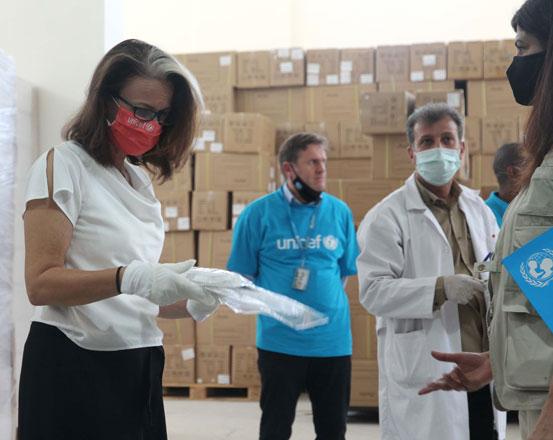- Local News
- Thu-2020-06-04 | 02:52 pm

Wednesday’s discussions marked the third meeting of the foreign ministers within the framework of the tripartite cooperation mechanism that was launched in 2016, according to a Foreign Ministry statement.
The ministers reviewed steps taken by the three countries to implement the outcomes of decisions made at summits held by the leaders in Nicosia on January 16, 2018 and in Amman on April 14, 2019.
During the remote meeting, the ministers stressed the continuation of work to deepen cooperation in the economic, commercial, investment, tourism and defence fields.
They also discussed ways to benefit from the opportunities provided by agreements signed in the fields of antiquities protection, intellectual property, renewable energy, education, culture, technological cooperation, public health and agriculture and rural development.
Safadi, Dendias and Christodoulides reaffirmed solidarity in facing the coronavirus pandemic and its economic and social repercussions.
The ministers discussed regional developments and developments related to the peace process and efforts to resolve the Syrian crisis, the Libyan crisis and the war against terrorism.
They also reviewed developments in the Kingdom's relations with the EU and stressed the "strength” of the Jordanian-European partnership.
Safadi highlighted the importance of the steps taken by the three countries to build on the outcomes of the tripartite summit’s second session, which was hosted by the Kingdom in 2019.
He highlighted that the summit resulted in the institutionalisation of tripartite cooperation through the establishment of a permanent secretariat for the mechanism based in Nicosia and periodic high-level meetings in the economic and security fields.
Safadi voiced appreciation for the positions of Cyprus and Greece in adhering to international law and the two-state solution being the only way to achieve a comprehensive and just peace.
He stressed the importance of the European position expressed by High Representative of the European Union Josep Borrell Fontelles, who stressed the rejection of any Israeli annexation of Palestinian lands that violates international law and undermines peace efforts.
The ministers also highlighted the need for providing the financial support required by UNRWA to enable it to carry out its international mandate to Palestinian refugees.
In the context of discussing regional developments, the ministers welcomed the formation of the new Iraqi government headed by Mustafa Kazemi and stressed the need for supporting it in its efforts to protect Iraq and its interests and achieve the aspirations of the Iraqi people.
The ministers also called for practical and swift steps to reach a political solution to the Syrian crisis.
The officials noted the importance of investing in the forthcoming Brussels Conference on Supporting the Future of Syria and the Region to underpin Syrian refugees in practical ways to ensure their continued support and that of the countries hosting them.
The ministers stressed that there is no military solution to the Libyan crisis, calling for joining efforts to stop the conflict and end the crisis through political resolutions.
During the meeting, the ministers discussed ongoing preparations for holding the third session of the leaders' summit, which will be hosted in the Greek capital, Athens, at a later time.
The officials agreed to maintain coordination on developing joint cooperation and to continue consultations on regional challenges and ways to overcome them








